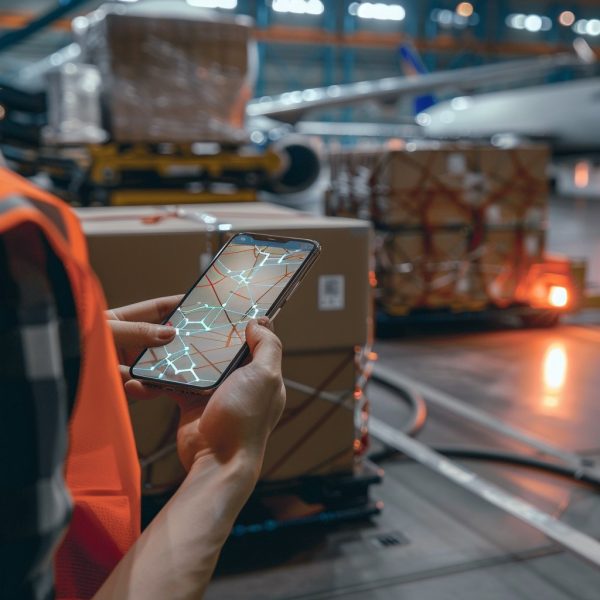Overview of Third-Party Logistics (3PL) in Air Freight Services
Table of Contents
Third-party logistics (3PL) providers play a crucial role in air freight services. They help businesses manage and streamline the complex shipping process by air.
Critical Functions of 3PL in Air Freight:
- Freight Management: 3PLs oversee the booking and coordination of air cargo, ensuring timely and efficient delivery.
- Customs Clearance: They handle customs paperwork and clearances, reducing delays.
- Tracking and Visibility: Many 3PLs offer real-time tracking so that you can monitor your goods throughout the shipping process.
Benefits of Using 3PL in Air Freight:
- Cost Efficiency: You can reduce shipping costs by leveraging the expertise and networks of 3PLs.
- Expertise: 3PL providers have deep knowledge of air freight regulations and best practices.
- Technology: Advanced tracking systems and logistics software enhance shipment visibility and control.
Challenges Addressed by 3PLs:
- Scalability: 3PLs can scale their services to meet your needs, whether you’re a small business or a large enterprise.
- Risk Management: They help mitigate risks associated with international shipping and compliance.
Looking for a 3PL Company for your Amazon Product or Ecommerce Business?
Operational Strategies of 3PL Providers
Third-party logistics (3PL) providers use various operational strategies to enhance air freight services. These strategies focus on optimizing route planning, effective inventory management, cargo consolidation, and efficient customs clearance processes.
Optimizing Route Planning
3PL providers use advanced technologies to optimize route planning. They use real-time data and predictive analytics to identify the most efficient routes. This reduces delivery times and costs.
Routes are planned to avoid congested airspaces and consider weather conditions, ensuring timely and reliable deliveries. By prioritizing direct flights and minimizing layovers, they enhance efficiency and reduce fuel consumption.
Inventory Management and Warehousing
Inventory management and warehousing are critical components.
Automated systems track goods in real time. This includes barcoding and RFID technology, which enables accurate inventory levels.
Warehouses are strategically located near major air hubs to facilitate quick shipment handling. Efficient stacking and storage techniques maximize space utilization. They also support speedier loading and unloading processes, ensuring the smooth flow of goods.
Cargo Consolidation Techniques
Cargo consolidation involves combining smaller shipments into a single load. This technique increases shipping efficiency and cost-effectiveness.
3PL providers group compatible goods together to optimize space within the cargo hold. This consolidates shipments into fewer flights, lowering transportation costs and reducing the environmental impact.
The careful planning ensures that consolidated cargo reaches its destination without delays or handling issues.
Customs Clearance Processes
Efficient customs clearance is crucial for international air freight.
3PL providers have dedicated customs specialists who manage documentation and compliance with regulations.
They use digital platforms to streamline the process, reducing paperwork and processing times.
By staying updated on international trade laws, they ensure swift movement through customs. This minimizes delays and avoids penalties.
Technology Integration in 3PL for Air Freight
Integrating technology in 3PL air freight services offers immense benefits such as real-time tracking, efficient load management, and automated documentation. These advancements ensure faster, more accurate logistics operations tailored to meet customer needs. Each generation of technology is a major turning point for business structures.
Amazon for instance used to be under the radar but with smart moves, and a lot of integration of newer technologies, They took front and center in the industrial world, forever changing the game of logistics.
Tracking and Monitoring Solutions
Tracking and monitoring solutions in 3PL air freight ensure that shipments are always accounted for.
Real-time GPS and RFID technologies enable you to pinpoint a package’s exact location at any given time. This is particularly valuable for high-value or sensitive items, or just in general, we get how anxiety goes. Keeping eyes and ears on each movement sometimes brings peace of mind that you didn’t know you needed.
Key features to look for:
- GPS Tracking: Provides real-time location data.
- RFID Tags: Ensure precise item identification.
- Geo-Fencing: Alerts for specific geographic boundaries.
Such technology minimizes the risks of lost or delayed shipments and enhances overall client satisfaction.
Efficient Load Management
Efficient load management systems in 3PL air freight optimize how cargo is handled and transported.
Advanced software allows you to manage how freight is packed into aircraft. This minimizes wasted space and maximizes payload capacity.
These systems often use algorithms to suggest the best packing methods.
Benefits include:
- Cost Savings: Reduces transportation costs by maximizing space.
- Time Efficiency: Speeds up loading and unloading processes.
- Reduced Damage Risk: Ensures safe cargo handling.
Leveraging efficient load management leads to more streamlined operations and cost-effective solutions.
Automated Documentation Flow
Automated documentation flow simplifies the otherwise paperwork-heavy logistics processes.
Employing EDI (Electronic Data Interchange) systems speeds up transactions and form submissions and reduces error proneness.
Advantages:
- Speed: Quick processing of shipments.
- Accuracy: Reduction in manual errors.
- Compliance: Easier adherence to regulatory requirements.
These advantages cause smoother operations and improved compliance with international shipping standards.
Benefits of Partnering with 3PL Companies
Partnering with a 3PL company can bring a variety of advantages, such as cost savings, expert advice, and greater flexibility for your air freight needs. Here are the key benefits in detail:
Cost Savings and Economies of Scale
You can leverage significant cost savings by teaming up with a 3PL provider.
Third-party logistics companies often have relationships with airlines, trucking firms, and warehouses. This allows them to negotiate better rates.
These savings are passed on to you, reducing your overall transportation costs.
The economies of scale achieved through a 3PL partner can be particularly beneficial for smaller businesses. Shared resources mean you only pay for what you use, avoiding large capital investments in infrastructure.
3PL providers help reduce operational costs by optimizing routes and consolidating shipments. This ensures you get the best value for your money without compromising on the quality of service.
Expertise and Industry Knowledge
3PL companies bring a wealth of expertise and industry knowledge to your business.
These providers have specialized skills in managing complex logistics processes, keeping up with industry regulations, and employing the latest technology.
Their staff often includes experts in supply chain management, customs, and international shipping requirements.
Leveraging this expertise can help you navigate the complexities of air freight more effectively.
3PL providers stay up-to-date with the latest trends and technologies in logistics. This ensures that your operations are efficient and follow industry standards, giving you peace of mind.
Enhanced Flexibility and Scalability
Flexibility is another significant benefit of partnering with a 3PL company.
When you experience seasonal fluctuations, sudden increases in demand, or need to scale down, a 3PL provider can adapt to your changing needs.
They offer scalable solutions that can accommodate varying shipment sizes and frequencies.
This agility allows your business to remain responsive to market changes without being constrained by fixed logistics processes.
Through extensive networks and resources, 3PL companies can quickly adjust to your evolving requirements. This means you can expand into new markets or reach remote locations without worrying about logistics constraints, facilitating business growth.
Challenges and Considerations in 3PL for Air Freight
Third-party logistics (3PL) providers in air freight face unique challenges. Key areas to consider include regulatory compliance, environmental impact, and managing global supply chains.
Regulatory Compliance and Security
Air freight involves strict regulations. You must adhere to international, national, and regional rules.
Compliance with customs regulations is crucial to avoid delays and penalties. Security is also essential.
The Transport Security Administration (TSA) and the International Air Transport Association (IATA) have specific guidelines.
Following these rules ensures the safety of goods and timely delivery. Introducing strict security measures, such as advanced screening and tracking, can add complexity but is necessary for compliance.
Environmental Impact and Sustainability
Air freight has a significant environmental footprint. It produces high carbon emissions.
Sustainable practices are becoming vital to reduce this impact.
You should consider using eco-friendly packaging and more efficient routes.
Implementing these practices helps reduce environmental impact.
Partnering with airlines that adopt green technologies and sustainable fuels is also essential. This not only benefits the planet but also attracts environmentally conscious clients.
Managing Complex Global Supply Chains
Handling global supply chains is a significant task for 3PL providers.
You must manage cross-border shipments, multiple time zones, and various currencies.
Real-time tracking helps manage this complexity.
Integrated IT solutions can streamline operations. Yet, it remains challenging to maintain efficiency and coordination.
Flexibility and agile strategies are crucial to deal with disruptions like political instability or natural disasters.
Partnering with reliable carriers and utilizing advanced technology can help you navigate these complexities effectively.
Frequently Asked Questions
3PLs manage transportation logistics, from coordinating shipments to ensuring timely delivery. They handle air freight scheduling, customs clearance, documentation, and compliance. Some also offer warehousing, packaging, and distribution.
3PLs bring expertise and industry connections. They negotiate better rates and secure quicker transport options. They also leverage technology to provide real-time tracking and data analytics. This results in smoother logistics and potential cost savings.
Traditional freight forwarders primarily focus on transportation. Meanwhile, 3PLs offer a broader range of services such as comprehensive supply chain management. They integrate warehousing, packaging, and inventory management, providing a more holistic approach.
Benefits include expert knowledge, improved efficiency, cost savings, and access to advanced technology. Meanwhile, drawbacks include less control over specific operations and potential dependency on the 3PL provider’s network and performance.
Shippers should consider the 3PL’s experience in air freight, technology capabilities, and network reach. They should also evaluate their reliability, industry reputation and ability to handle compliance and regulations.
Emerging trends include the growing use of automation and AI in logistics, an increasing demand for real-time tracking, and the shift towards more sustainable practices.
Companies are also seeking 3PLs that offer end-to-end logistical solutions.










